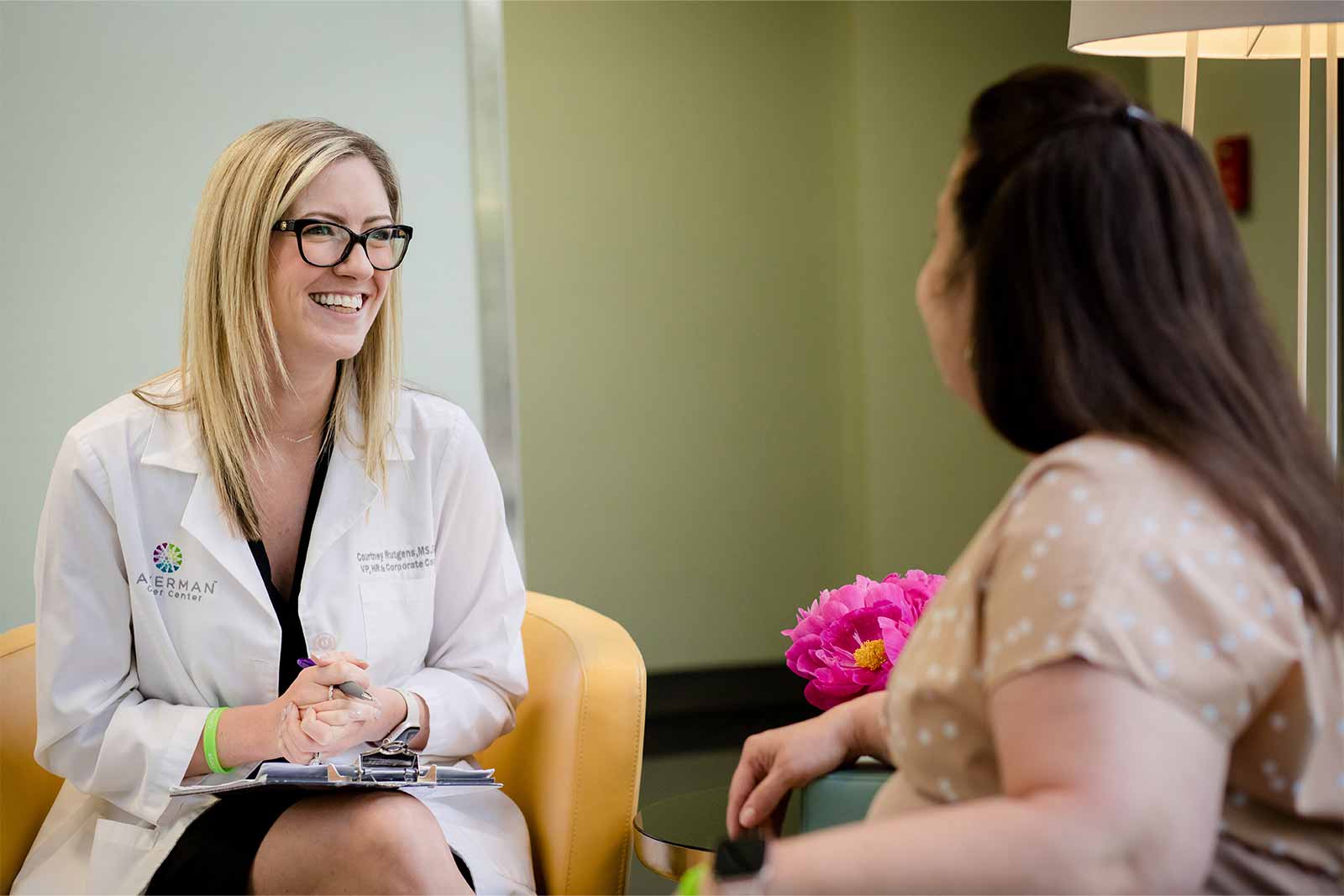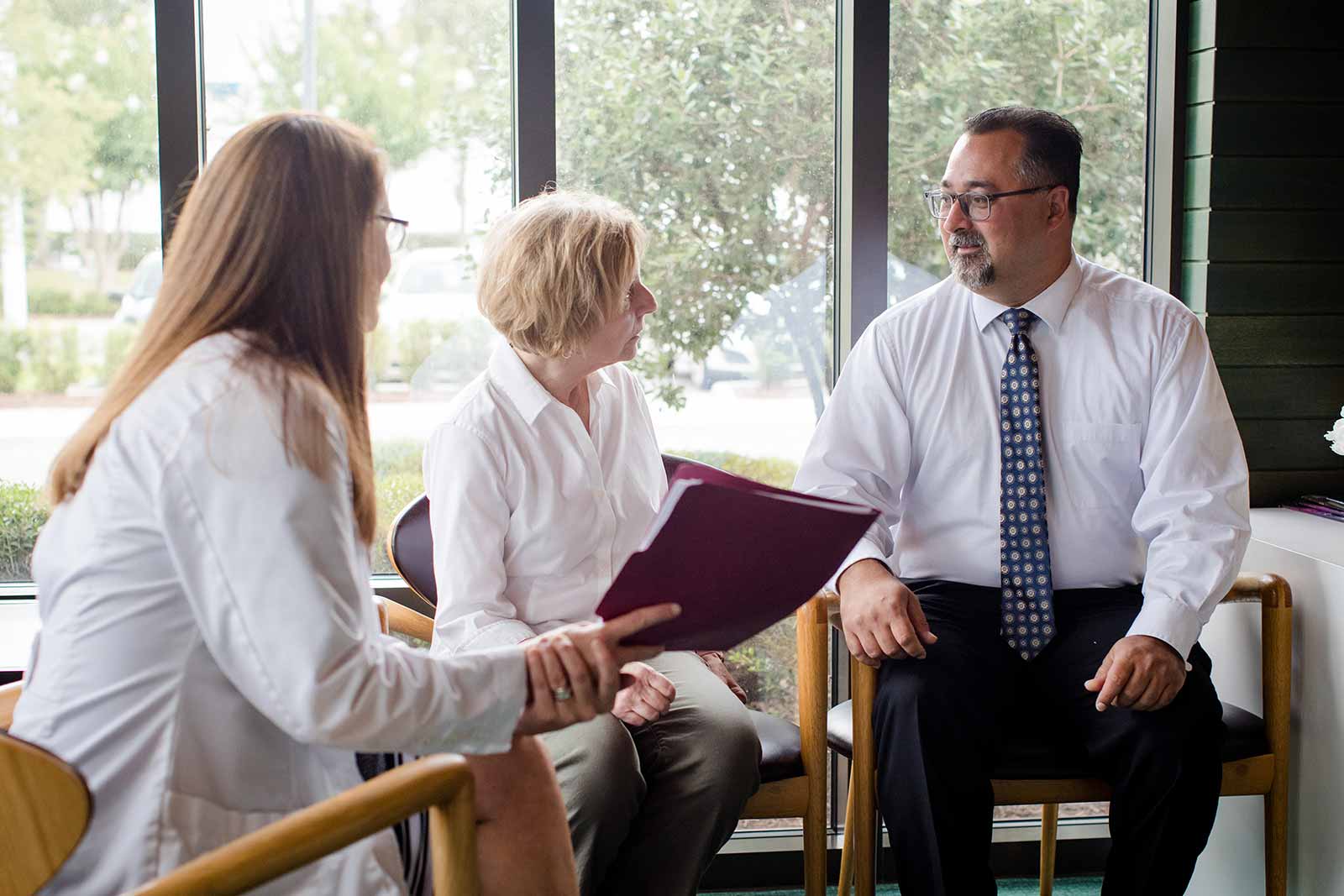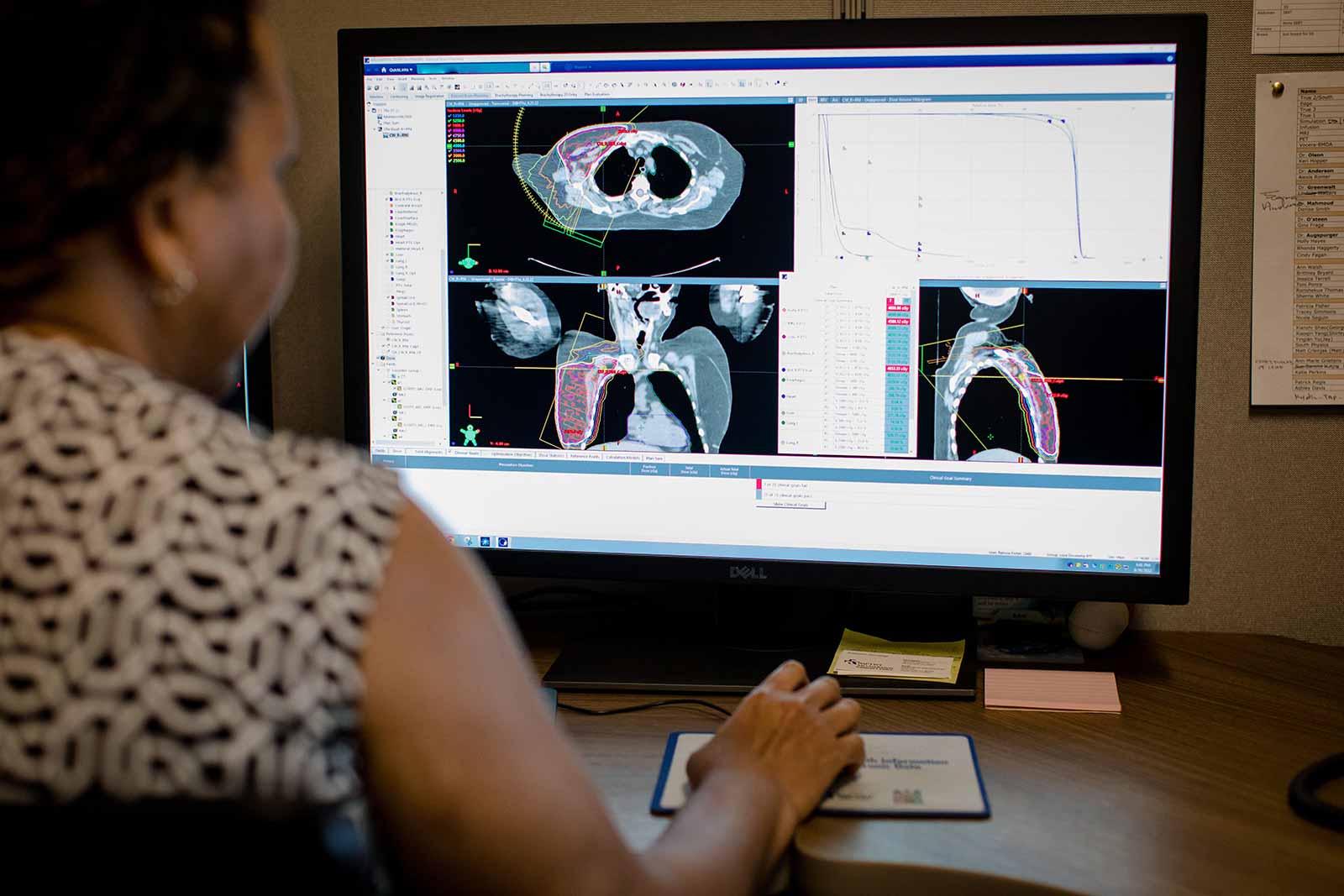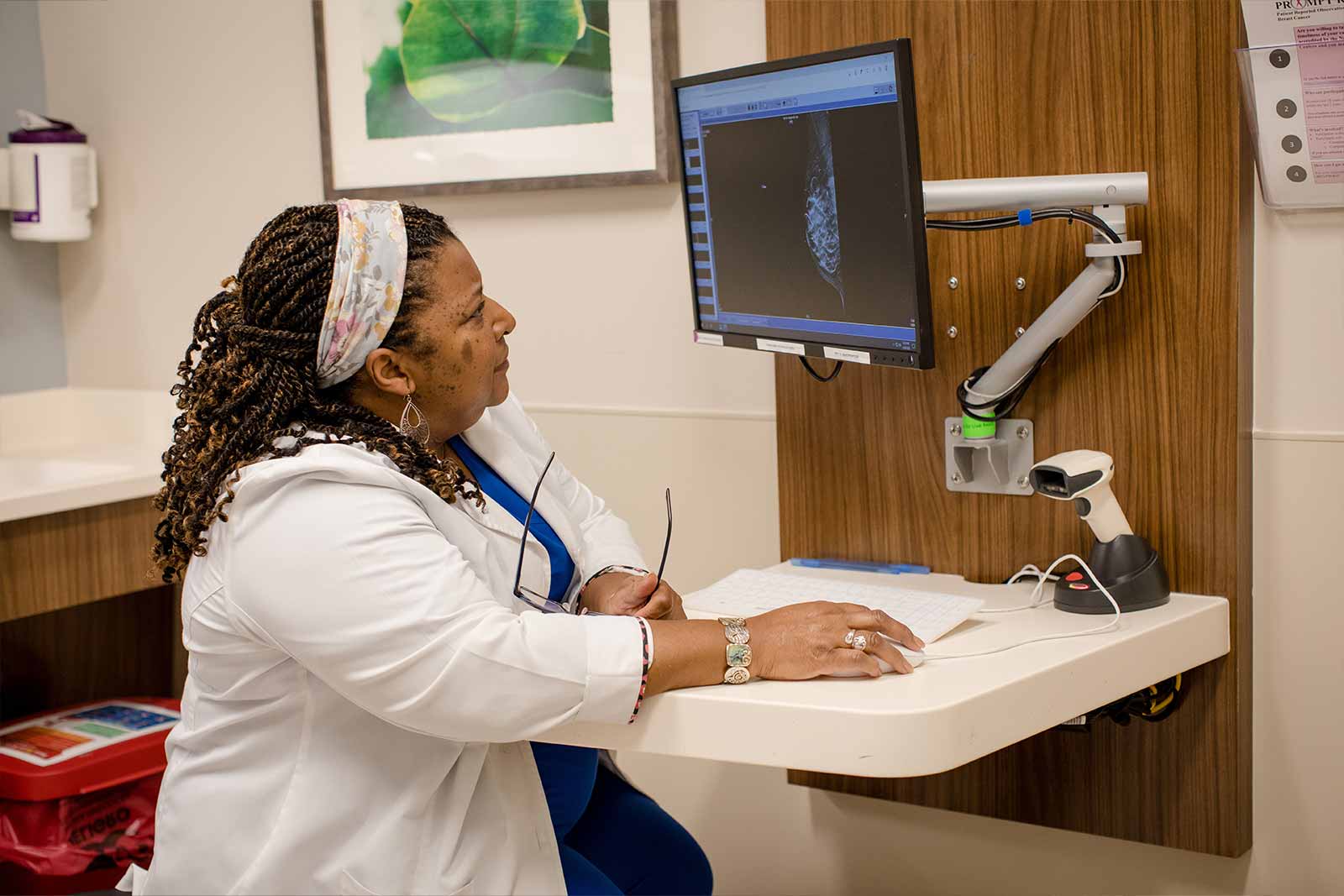Women should receive regular screenings to promote the early detection and treatment of breast cancer.
Screening
- All women: Understand the benefits, limitations and potential risks of breast cancer screenings, including how family history and other risk factors play a role. Learn how to perform a monthly self-breast exam and contact your health care provider if you’re under 40 and notice any changes.
- Women ages 40 to 44: Talk to your health care provider about breast cancer screening, including mammograms (breast X-rays).
- Women ages 45 to 54: Schedule a yearly mammogram through a health care provider or local county health department.
- Women 55 and older: Switch to mammograms every two years or continue annual screenings. Screenings should continue as long as you are in good health.
If you do not have access to a health care provider, you may be able to receive free or low-cost screenings through the Florida Department of Health’s Breast and Cervical Cancer Early Detection Program.



Male breast cancer
Although rare, men can also develop breast cancer. In 2019, only 193 men in Florida were diagnosed with breast cancer, compared to 19,060 women (Source: Florida Cancer Data System). Contact a health care provider as soon as possible if you notice any changes in your breasts.
Non-Hispanic Black men and men over 80 years old are reported to have the highest incidence and death rates of male breast cancer. Be proactive when it comes to your health. Talk with your health care provider about the benefits of breast cancer screening.
Florid's Breast and Cervical Cancer Early Detection Program
The Florida Department of Health’s (DOH) Breast and Cervical Cancer Early Detection Program promotes early monitoring and treatment of cancer by encouraging all women to receive regular screenings.
If you do not have access to a health care provider, you may receive free or low-cost screenings through DOH’s Early Detection Program. Florida Medicaid supports the care of most women diagnosed under this program. The program is structured to reach women in each county across the state.


DOH’s Early Detection Program offers services such as:
- Breast and cervical cancer screening (clinical breast exams, mammograms, and Pap tests)
- Diagnostic testing for women with abnormal screening results
- Care coordination for all women with abnormal exams
- Florida Medicaid eligibility referral for women screened and diagnosed with cancer
Screening Eligibility
The eligibility requirements for women to be screened by the program include ALL of the following:
- Florida resident
- Aged 50-64
- At or below 200% of the federal poverty level
- Underinsured or uninsured
- Women younger than 50 years old who are symptomatic
- Have a family history of breast cancer
Women who have been diagnosed with cancer through DOH’s Early Detection Program are provided care coordination and Medicaid enrollment assistance through the Florida Department of Children and Families.
Women not eligible for the program are directed to screening, diagnostic and treatment services in their local community. National organizations, such as the Susan G. Komen and the American Breast Cancer Foundation, provide breast cancer screening in some Florida locations for both men and women who need of financial assistance.
Learn More About Getting Treatment
 DOH’s Florida Early Detection Program partners with mobile ‘Mammovan’ providers to address the limited access to health care providers, imaging facilities and transportation for women to access services in Florida’s rural counties.
DOH’s Florida Early Detection Program partners with mobile ‘Mammovan’ providers to address the limited access to health care providers, imaging facilities and transportation for women to access services in Florida’s rural counties.